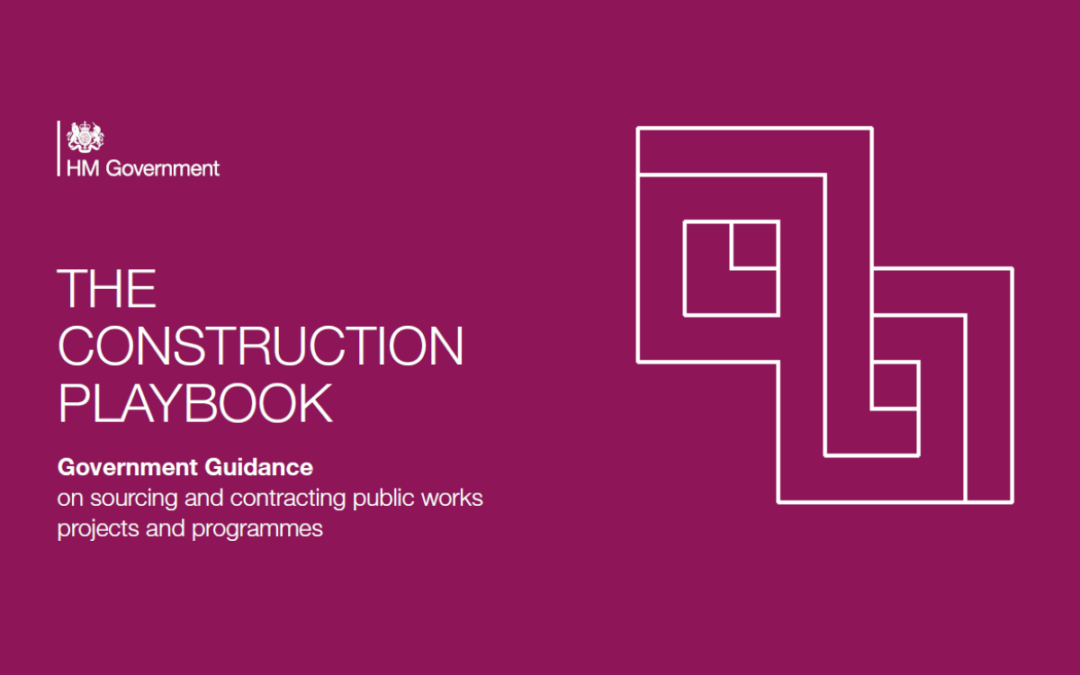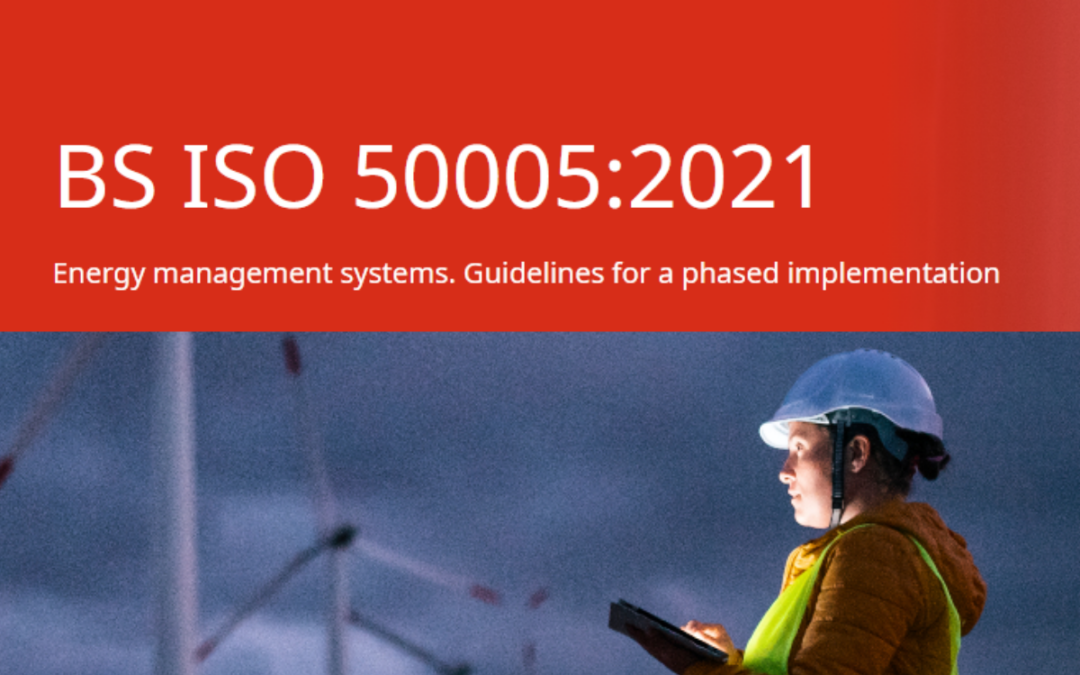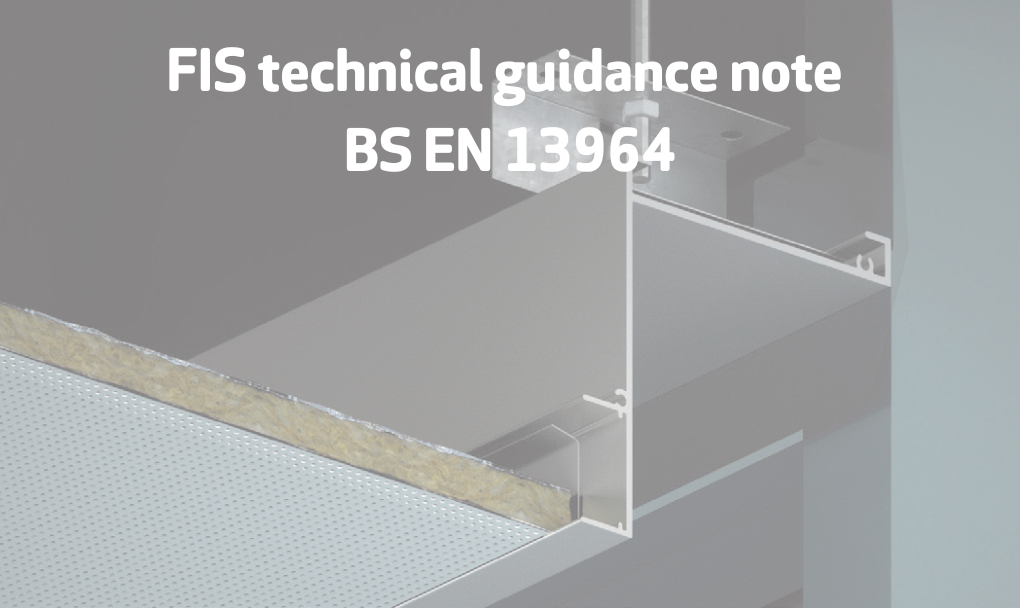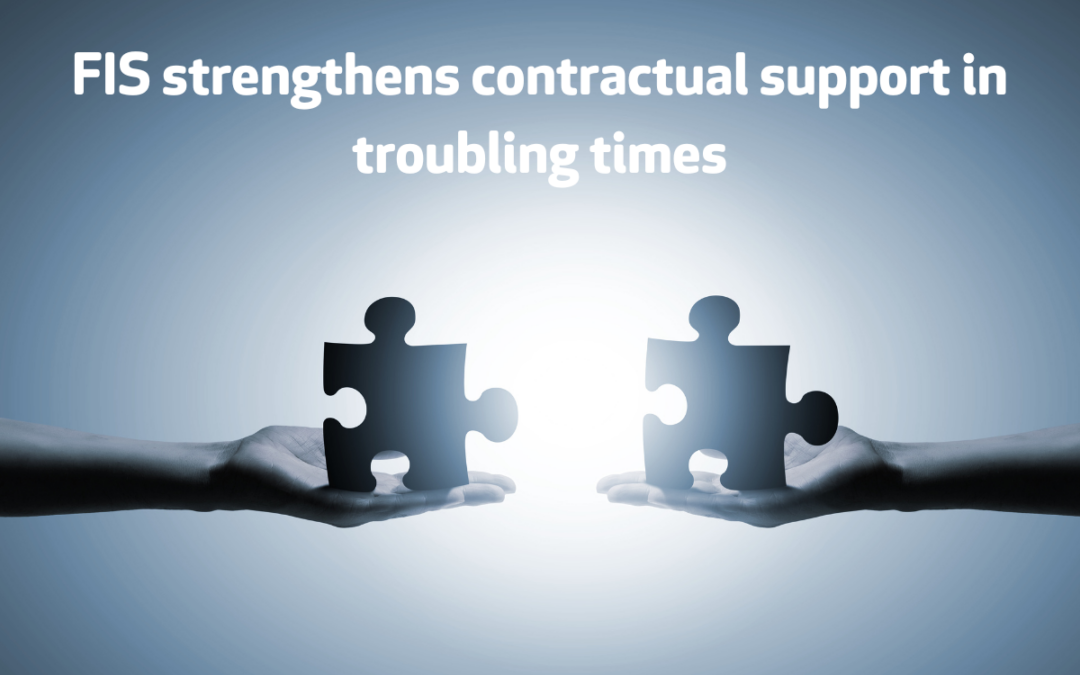
by Clair Mooney | 9 Sep, 2022 | Main News Feed
Following the sad news of Her Majesty Queen Elizabeth II’s death, the CLC has this morning written to His Majesty The King and The Royal Household, to express condolences on behalf of the industry.
A copy of the letter is below, and is also available on the CLC website
The Private Secretary to His Majesty The King
Buckingham Palace
London SW1A 1AA
09.09.22
I write to you as the Industry Co-Chair of the Construction Leadership Council to offer condolences on behalf of our sector following the announcement of the death of Queen Elizabeth II.
In a lifetime of public service, Her Majesty dedicated herself to the people of the United Kingdom and the Commonwealth. Her selfless commitment to duty was reflected in the admiration in which she was held, both here in the United Kingdom and globally. We know that for millions of people who work in our industry, Her Majesty will have been a central and consistent figure in their lives, a respected monarch whose legacy will inspire future generations.
Today, our thoughts are with the Royal Family and all others affected on this saddest of days.
Yours faithfully,

Mark Reynolds
Co-Chair
Construction Leadership Council

by Clair Mooney | 8 Sep, 2022 | Building Safety Act, Insurance
Projects to tackle fire safety risks on high-rise residential buildings have been boosted by the publication of a new model insurance clause covering fire safety risks. The wording has been developed by the International Underwriting Association (IUA) and the Department for Levelling Up, Housing and Communities for use in work being completed under the government’s £4.5bn Building Safety Fund. It will help speed up the removal of unsafe cladding, encourage a greater safety culture within the construction industry and provide insurers with increased confidence in risk management processes employed by the construction sector.
The model clause is freely available for use by underwriters looking to provide professional indemnity insurance for building cladding remediation work. The Building Safety Fund was introduced in order to cover the cost of such refurbishment work on high rise residential blocks over 18m.
Levelling up Secretary, Greg Clarke said: “Our priority is making sure people’s homes are safe and that safety standards are high.
“Alongside our tough new regulatory regime, this new clause that has been developed with my department will help us do just that.
“We welcome the work of the IUA and the underwriters who are taking a proportionate approach to fire safety cover and I thank insurers in advance for using it.”
Chris Jones, IUA Director of Legal and Market Services, said:
“Our new model clause sets out a number of key risk management processes that will ensure work being carried out is conducted within recognised industry standards. This will help improve accountability for safety measures and foster an investment in quality construction.
“The market for construction professional indemnity insurance has been difficult in recent years, reflecting concerns about the potential for historic liabilities to develop into future claims following the Grenfell Tower tragedy. Each new risk must continue to be assessed on a risk-by-risk basis, of course, but the clause should provide underwriters with greater confidence to offer effective insurance solutions for future work.”
A survey of IUA members in September last year revealed a cautious willingness amongst IUA members to underwrite fire safety risks on new projects to remove defective cladding from high rises. Around two thirds of respondents stated they would provide a limited form of cover, whilst a further 4% were happy to offer unrestricted protection.
The poll was carried out by the IUA’s Construction Professional Lines Working Group which was established in 2019 to encourage greater engagement between insurers, government, regulators and construction firms.
Copies of the IUA Building Safety Fund Cladding and Fire Safety Limited Exclusion and Aggregation Clause are freely available to download at https://www.iua.co.uk/IUA_Member/Press/Press_Releases_2022/IUA_publishes_new_fire_safety_clause_for_high_rise_repairs.aspx
Any questions or comments related to this clause should be fed to Iain McIlwee, (iainmcilwee@thefis.org) who is representing the FIS Community on the Construction Leadership Council’s Insurance Working Group

by Clair Mooney | 8 Sep, 2022 | Skills
An employer is able to apply for grants in respect of construction industry related training undertaken by:
- directly employed staff (including apprentices) on the payroll;
- sub-contractors (both net and gross-paid); and
- sole traders and partnerships.
Provided the individuals are working at the time of the training for the employer making the application and that CITB grant support has not already been received for the particular training and/or qualification. An employer may authorise third party training providers and/or colleges providing services to the employer to complete a grant application on their behalf. Where the employer so authorises, the responsibility to ensure that applications are made in accordance with the Grants Scheme terms and conditions and to repay any grants received as a result of an error by the third party remains with the employer. The employers construction industry levy payments must be up to date. If your allowing training or qualification assessment of your sub-contractors on your jobs or sites, regardless of how the training and/or qualification is being paid for find out what they are undertaking and claim the Employer grant.
To apply for grant, applicants should visit CITB’s website. The requirements specific to each grant type should be checked prior to submitting an application as some grants operate restrictions. If you are unsure please contact Marie Flinter 07799 903103 or email marieflinter@thefis.org

by Clair Mooney | 8 Sep, 2022 | Main News Feed
Please consider if you are using, or think you might be using sealants and adhesives that contain diisocyanates (polyurethane based sealants) as you will need to do the following:
UK REACH legislation requires that operatives are trained prior to the use of diisocyanates.

by Clair Mooney | 8 Sep, 2022 | Main News Feed
The Managing Price Inflation guidance produced by Build UK has been updated with information on whether a contract can be lawfully terminated if inflation makes it commercial unviable. It outlines the key considerations, including the circumstances giving rise to termination and consequences if that step is taken.

by Clair Mooney | 8 Sep, 2022 | Main News Feed
With insolvency risk beginning to rival inflation as a threat to the industry, Director of KPMG’s Major Projects Advisory Team Joe Manning has outlined how to identify and respond to signs of insolvency in the supply chain. A combination of the following warning signs may indicate that a company on site is in distress:
- A high turnover of staff
- A general decrease in labour
- A slowdown in the progress of the works or the works not achieving project timescales or milestones
- Poor quality workmanship and/or an increase in defects
- Removal of plant, equipment and/or materials
KPMG has published a summary on preserving value under supply chain pressure which includes the measures that can be put in place to protect against insolvency and the steps that should be taken in the event that it occurs.

by Clair Mooney | 8 Sep, 2022 | Main News Feed
The latest information from Builders’ Conference shows that 460 contracts worth £6.2 billion were awarded in August. Both the number and value of contracts were higher than the monthly average over the last year, which is particularly encouraging given that August is traditionally quieter due to the summer holidays. It was a strong month for the public sector, which accounted for 39% of all contracts awarded by value, including two prison contracts totalling £650 million and three water and sewage projects worth £505 million. In the private sector, there were 136 housing projects worth £1.9 billion (30%), 24 industrial projects totalling £326 million (5%), and 67 office projects worth £319 million (5%).
The number of tender opportunities was still 8% below the previous month and, with the new Prime Minister now in place, the industry will be hoping that continued investment in infrastructure together with a plan to deal with rising inflation will sustain activity for the rest of the year.

by Clair Mooney | 8 Sep, 2022 | Skills
With construction needing to recruit over 53,000 new entrants every year to maintain output, Build UK has published the results of its latest survey of members to understand current levels of employment within the industry and the impact of job vacancies across the supply chain. ‘Increasing Employment in Construction’ reveals that 33% of respondents have increased their number of directly employed workers in the last 12 months, with 50% predicting an increase over the next year, which is being driven primarily by an increase in activity, followed by companies taking on more new entrants and apprentices.
68% of Build UK members confirmed they currently have vacancies, which is increasing pressure on existing teams and stifling business growth. To help recruit more new entrants into construction, Build UK will be focussing on improving the journey from education to employment, and will be reviewing the various ways that young people take their first step into the industry, including Apprenticeships, Traineeships, T Levels and Degrees.

by Clair Mooney | 8 Sep, 2022 | Main News Feed, Sustainability
Eco-I North West is a practical, interactive project aimed at North West based SME’s that are starting their low-carbon innovation journey and are looking for opportunities and support to become a low-carbon business.
It is being run as two ‘in-person’ workshops held on campus at Manchester Met.
Dates: Wednesday 12 October 2022 & Wednesday 19 October 2022
Time: 10.00 to 16.00 (with lunch provided)
Location: The Salutation, 12 Higher Chatham Street, Manchester, M15 6ED (Part of Manchester Metropolitan University’s Campus).
Cost: For NW based SME’s the project is fully funded via ERDF.
What will be covered
During COP26 the UK Government announced plans for firms to show how they intend to hit net-zero. For those who have not engaged with the sustainability agenda before, or those who have looked at the scale of the challenge and wondered what they can do next to avoid the challenges of things like clean air bills and bans on red diesel fuel, this can feel like a daunting proposition.
On the 12th & 19th October, Manchester Metropolitan University are holding a two-day interactive workshop to help North West SMEs begin their sustainability journey through the development of long-term net-zero action plans, with a particular focus on innovation. The programme will cover: the basics of the climate emergency; understanding your business and its environmental impacts; identifying opportunities for innovation; and, how to develop pathways that can take businesses from current to next practice. Following the workshops, participating businesses will also have the opportunity to work closely with Manchester Met academics to implement innovations in their organisation through things like biofuels, hydrogen, 3D printing and more.
If you are interested in learning how your organisation can adapt to the threats and opportunities posed by the climate emergency and how it can not just survive, but thrive in a net-zero world, then you can register your interest and arrange an informal chat about the project, by completing the EOI form on the website ECO-I North West · Manchester Metropolitan University

by Clair Mooney | 6 Sep, 2022 | Sustainability, Transformation
The Cabinet Office has now published the first revision of the Construction Playbook. The Playbook captures commercial best practices and specific sector reforms outlining the government’s expectations of how contracting authorities and suppliers, including the supply chain, should engage with each other.
These are set out in 14 key policies for how the government should assess, procure and deliver public works projects and programmes which all central government departments and their arms length bodies are expected to follow on a ‘comply or explain’ basis.
This is the culmination of 6 months work, which has involved people from across Whitehall and the construction sector, and to which BEIS has made a significant contribution, particularly in relation to the enhanced content in the Playbook and associated guidance on net zero carbon and environmental performance as a key component of a strategic approach to ensuring the sustainability of infrastructure and construction projects. The key points about the substance of these changes are:
- a clearer statement that whole life carbon assessments should be undertaken for all HMG construction projects and programmes, and that these should be consistent with strategic organisational objectives for decarbonising estates and improving carbon performance;
- further guidance on what action contracting authorities should be undertaking at each stage of the process for implementing these projects, from market engagement through to handover and operation, to deliver improved carbon outcomes, with an emphasis on benchmarking, monitoring and reporting these;
- pointing contracting authorities to a much wider range of external resources (toolkits, advice and guidance, promoting the circular economy and contractual clauses – the CIH Value Toolkit is regularly referenced, and we also cite Construct Zero in the Guidance Note) to support their efforts and enable them to embed a more comprehensive approach;
- incorporation of the need to address the provisions of the Environment Act 2021 (e.g. biodiversity net gain), and also emphasising the importance of wider considerations such as air and water quality; and
- additional and comprehensive guidance on Net Zero and Sustainability, including a set of case studies of best practice. We highly recommend the Foleshill Health Centre one as an example of what can be achieved – but we have also managed to include case studies from HS2, the Environment Agency, and also the product platform developed through the TCC with CIH involvement.
Comment of the revised launch of the Construction Playbook FIS CEO, Iain McIlwee stated:
“The Construction Playbook sets its stall out in the first line – the focus is getting projects and programmes right from the start. Nothing really is more important than this, as per our own research on procurment – the best form of dispute resolution is effective procurement in the first place. It is imperitive as the biggest client of construction in the UK that Government is an exemplar client and that the principles outlined in here extend to the wider public sector procurement and into institutional investors.”
The revised version of the Construction Playbook, together with associated documents is available here.
Details of FIS Research into Procurement is available here.

by Clair Mooney | 6 Sep, 2022 | Contractual and Legal, Lens Blog, Main News Feed
The second in our series of short blogs by FIS Consultant, Len Bunton on contractual and commercial issues he experiences when supporting FIS members and the wider community – it is designed to help FIS Members avoid common traps and build on our focus on collective experience.
My phone is ringing a lot just now with clients saying – “we need help as we are not getting paid.” Is that going to improve, and I would say no in the current market conditions. What business in the construction industry need to do is to become much more focused, and commercially smarter in dealing with the financial aspects of their projects.
So here are a few suggestions…

by Clair Mooney | 6 Sep, 2022 | Sustainability
Given the need to focus all efforts on reducing the cost of energy, SME’s are reminded that they can get a free copy of the standard BSI ISO 50005 on energy management.
The aim of the guide is to help SMEs with their decarbonisation journey, and BEIS in a practical gesture, has sponsored 100,000 free copies of the BS ISO 50005 standard which is targeted at SMEs to help them “to develop a practical, low cost-approach to energy management to reduce energy consumption, energy bills and greenhouse gas emissions”.
Energy management systems are systematic tools that support businesses in managing their energy usage. The BS ISO 50005 standard is designed for SMEs through a phased/staged implementation approach to make it manageable for SMEs with small resource and capacity.
You can download your free copy here.

by Clair Mooney | 6 Sep, 2022 | CSCS
CSCS has updated its user guide for employers making applications on behalf of their workforce. Designed to make applications quicker and easier, the new guidance is available to download for free and includes information on registering applicants, uploading employee qualifications and adding CITB Health, safety and environment test details.
The guidance also includes the following:
- Lost and replacement cards
- Signing into your account
- Types of application
- Card dispatch addresses
- Useful hints and tips to save you time and effort
Download the new updated guidance free via the CSCS website.

by Clair Mooney | 5 Sep, 2022 | Skills
Now pupils are heading back to school and those who left in June or July follow their post school dreams there is going to be a number of young people who are undecided, back into education, further education linked to an occupation, employment or an apprenticeship. If you are looking to increase your workforce the pool of undecided could be an opportunity.
When you embark on the quest to recruit it is worth considering what qualification options there are available for your new employees. FIS have 34 Training Provider members up and down the country offering training, qualifications and apprenticeships from the trades to senior management take a look at FIS Training Directory for a fellow member in your area, some of these training organisations operate nationally and will deliver the necessary training onsite.
Vocational qualifications are the main stay of the sector but are more suited to experienced workers unless preceded by a formal training programme leading to a recognised national qualification, as they are in the apprenticeship frameworks for Scotland and Wales. Individuals learn the skills and knowledge in a training environment and apply these in the workplace to develop the appropriate attitude and gain experience.
For apprenticeships in England FIS members deliver training for the following trade options:
- Plasterer
- Option 1 – Solid
- Option 2 – Fibrous
- Interior Systems installer
- Option 1 – Dryliner
- Option 2 – Ceilings and Partitions Installer
Take a look and download a copy of the FIS Apprentice – Guidance for Employers. If you need any assistance to source training or qualifications call FIS on 0121 707 0077 or email info@thefis.org.

by Clair Mooney | 2 Sep, 2022 | Skills
A great way to launch a career in the sector is by one of the many Apprenticeships on offer. Age is not a restriction for career changers and there are opportunities to upskill in various occupations. There are more than 640 apprenticeships approved in England by employers, meaning someone could pursue a career in anything from Dryliner to Contracts Manager. The National Apprenticeship Service has some great advice for employers including clear information on costs. Take a look at the FIS Apprentice – Guidance for Employers and if you need information, advice or guidance call FIS on 0121 707 0077 or email info@thefis.org
Transfer and Receive Apprenticeship Levy
Employers in England that pay the apprenticeship levy can transfer their unused apprenticeship funds to help other organisations pay for apprenticeship training. The employer that receives the funds can only use them to pay for apprenticeship training and assessment. You can transfer up to 25% of your apprenticeship funds.
Prior to sign up you will need an apprenticeship service account
Create an account to manage apprenticeships – Manage apprentices (manage-apprenticeships.service.gov.uk)
Transferring your apprenticeship levy to another business – GOV.UK (www.gov.uk)
An apprenticeship levy paying employer can transfer up to 25% of their annual levy funds to another employer to pay for the training and assessment costs for apprenticeship standards. Transfers can support new apprenticeship starts, this includes existing staff starting an apprenticeship or where the apprentice’s employer has changed. Transfers may be used to support the skills gaps and shortages within locations or sectors.
Receive a levy transfer from another business to fund an apprenticeship – GOV.UK (www.gov.uk)
Transfers is one way of receiving funding to support the costs of apprenticeship training and assessment. By receiving a transfer, if you do not pay the levy then you will save the 5% employer co-investment. Also, transfers do not count towards reservation of funds. Apprenticeships are not just for new employees; they are available to upskill existing employees too.
If you need assistance to transfer, pledge or secure apprenticeship funds for taking on an apprentice give FIS a call on 0121 707 0077 or email info@thefis.org

by Clair Mooney | 2 Sep, 2022 | Technical
FIS has produced guidance that is designed to support and enable better understanding and engagement with BS EN 13964.
The guidance note aims to break down the standard into bite sized sections making it easier to understand to those who aren’t already familiar, allowing anyone to isolate only the sections that are relevant or of interest and gain either a passing understanding or to establish the necessity of purchasing the full standard. Where appropriate, each section covered will also give relevant commentary on reasonable expectations of products in the marketplace today.
Whilst the guidance is not designed to replace the standard and should not be relied upon to relay comprehensive detail and listings, it will prove useful to anyone who is not sure if the standard applies to certain products, are using the standard for specification purposes or simply wish to understand more about the reasonable expectations of performance requirements of a suspended ceiling.
FIS has previously published a comprehensive Specifiers Guide to Ceilings and Acoustic Absorbers that references BS EN 13964, but gives specification advice based on all common ceiling types and associated market expectations of performance and tolerances etc so the advice is not constrained to only those types of ceilings covered by the standard.
Referenced and associated FIS publications:
Specifiers guide: Ceilings and acoustic absorbers
FIS Best practice guide: Selection and installation of top fixings for suspended ceilings
FIS Best practice guide: Installation of suspended ceilings
FIS Best practice guide: Maintenance and access into suspended ceilings
FIS Site guide: Suspended ceilings
FIS Technical note: Transition trims
The unintentional designer
For further information or for any questions please contact FIS at info@thefis.org or call 0121 707 0077.

by Clair Mooney | 2 Sep, 2022 | Building Safety Act
The Setting the Bar report outlines a system of competence standards for all those working on higher‐risk buildings, and two of the Working Groups responsible for reviewing specific sectors have now published proposed standards for comment:
- Working Group 9 is consulting on the Framework for competence of Site Supervisors in England which covers individuals working under the supervision of a Principal Contractor and those supervising workers on a day‐to‐day basis. This will be of interest to those fulfilling the role of Site Supervisor, as well as those that delegate to, employ or train Site Supervisors. Comments should be submitted to the CIOB by Friday 30 September.
- Working Group 7 is consulting on the Framework for competence of Designers in England which covers organisations or individuals that prepare or modify designs for projects, as well as those that arrange for or instruct others to do so. This will be of interest to anyone fulfilling the role of a Designer, for example architects, engineers, surveyors, contractors, specialists, manufacturers and suppliers. Comments should be submitted to the RICS by Wednesday 5 October.
DLUHC is also consulting on the changes that will be made to Building Regulations to implement the new building safety regime. There are 12 different sections to the consultation, including dutyholder roles, gateways, change control process and more rigorous enforcement powers. Comments can be submitted online or via email by Wednesday 12 October.

by Clair Mooney | 30 Aug, 2022 | Main News Feed
The CPA Techincal and Regulatory team have updated the latest paper regarding areas of concern on the UK-EU Trade and Cooperation Agreement. This is set as a result of the post-Brexit UK-EU Trade Deal, particularly around the transition from CE Marking to CA Marking. To read more on the subject, you can access the paper here.
FIS CEO Iain McIlwee stated:
This is worrying long list given the time available. We need to be having conversations with the supply chain and checking our contracts to ensure that we are not going to get landed with liquidated damages because availability of a product or component becomes an issue. We continue to ask members to come forward with any specific problems that they face and to work with the CPA, CLC, Civil Service and our political masters to ensure that we don’t leave construction in the lurch because of practical problems resulting from political indecision and resource”.

by Clair Mooney | 19 Aug, 2022 | Market data
There were signs that the extended period of growth experienced by the construction supply chain began to ease in the second quarter of 2022, with cost inflation dominating the headlines of industry surveys. Whilst net balances for construction product manufacturers’ sales and SME contractors’ workloads continued to show growth, they were the lowest since 2020 Q4 and were accompanied by product manufacturers anticipating a fall in sales over the next 12 months and SMEs reporting that enquiries slowed significantly from recent quarters, including falls for new house building and the industrial and commercial sectors

by Clair Mooney | 19 Aug, 2022 | Main News Feed
In the last few weeks FIS has seen an increase in requests from members related to contractual matters, some that are reaching a critical point.
The range of requests for support have included delayed payments, price fluctuations and misalignment in pricing of variation as well as concerns over design liability and transfer through contracts. As inflation and delays continue to erode margin, such issues are seem set to become more commonplace – whilst the industry talks about transformation, there is a danger we are becoming more contractual.
To support members in a challenging time, FIS is delighted to announce a new consultancy arrangement with Bunton Consulting Partnership. This partnership will enable FIS to extend support for members experiencing commercial and contractual issues, by referring them to a highly experienced Industry Consultant, Len Bunton FRICS FCIArb Hon FRIAS (further details below). Len will provide an initial free consultation of 1 hour to discuss and review the specific issues faced and to help develop a strategy to address. Should further advice and support be necessary, thereafter then Len will agree the necessary fee levels with each FIS member.
Commenting on the introduction of this new service, FIS CEO Iain McIlwee stated:
“This partnership further strengthens the support FIS provides to its members in managing contractual concerns. Sadly we still operate a contractual structure that often encourages adversarial behaviours – we even call ourselves contractors rather than constructors and the result is we spend as a sector 1.9% of turnover, almost double that of any other industry, on legal disputes. The cost to the bottom line is crazy, the cost to lives and wellbeing morally reprehensible. At FIS we are focussing on procurement as a key lever for change, but we are very conscious we are where we are and it has never been more important for members to review their contractual positions and make sure they understand and can quantify risks. We have seen an uptick in administrations in recent months and there is a fear that the industry is entering survival mode. This is when we are tempted to resort to the worst possible behaviours. We are grateful to Len for stepping up to provide additional help in these challenging times – his work on the Conflict Avoidance Pledge and advocating this approach makes him a perfect partner for FIS.”
As part of the new relationship Len Bunton made the following comment:
“I have dedicated my career to conflict avoidance and this for me starts before the contract is even signed – it is all about getting off on the right foot. You need to enter contracts with your eyes open to the risks and reinforce to everyone involved in the project that paperwork is everything and that any instruction must be documented and confirmed in writing at the time.
The clearer the information, the less ambiguity which means less scope for misunderstanding and reduced opportunity to debate and delay. It is also critical to make sure all are aware of contractual deadlines and any how any deviation from programme or variation in price needs to be reported. Doing all of this won’t guarantee the avoidance of all disputes, but they will see many off before they start and allow for speedier resolution and ensure that you are in the best possible position should you need to rely on third party intervention. I am looking forward to working with FIS Members to resolve existing issues, but also offer the advice and support that will help them avoid the next one too.”
With Len, FIS is actively encouraging members and the wider construction community to look at Conflict Avoidance Pledge (CAP), based on the simple concept – the cheapest way to manage any dispute is not to have it at all. The CAP is a contractual mechanism, which helps parties to avoid getting embroiled in pro-longed and damaging disputes. Where disagreements begin to develop, CAP enables parties to address and resolve matters early, collaboratively and inexpensively. The process recommends standard clauses that you can include in your contract.
Further information about Bunton Consulting Partnership is available below:
Len Bunton FRICS FCIArb Hon FRIAS – has over 40 years’ experience as a cost consultant and, adjudicator, arbitrator, mediator, expert witness and conflict avoidance consultant. He has extensive experience on major projects. Len is Vice Chair of the Conflict Avoidance Process Coalition and is absolutely committed to the Conflict Avoidance Process.
Bunton Consulting Partnership, 2 Ardoch Way, BRACO, Perthshire, FK15 9RH | Also at Princes Exchange, Princes Square, LEEDS, LS1 4HY | E: len@buntonconsulting.co.uk
This service compliments the existing FIS Legal and Helpline and Contractual Support and can be accessed by calling the FIS office on 0121 707 0077.
For the full range of supporting advice and information available to members you can visit the FIS Contractual Commercial and Legal Toolkit here.





















